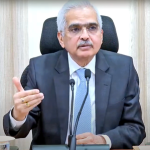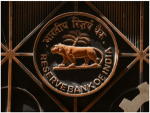New Delhi: RSS’ economic wing, Swadeshi Jagran Manch expressed its concern over issues regarding outflow of valuable foreign exchange in the name of royalty and technical fees by multinational corporations (MNCs).
Referring to the decision of Hindustan Unilever Ltd. (HUL) to increase the Royalty payment to their parent company Unilever, from 2.65 per cent to 3.45 per cent (that is, 80 basis point hike), over three years till 2025, it said: “This decision has once again exposed the unethical practice of increasing royalty payment by MNCs, impacting, health of the economy in general and outgo of foreign exchange and ultimate depreciation of rupee in particular.”
“Swadeshi Jagran Manch (SJM) demands that the government reimpose these ‘caps’ to save valuable foreign exchange as there is no logic to continue the same. These curbs would help increase the profits of MNCs, mainly in the automobiles sector, prevent depletion of foreign exchange reserves and protect the interest of minority shareholders. It will also increase the revenue of the government, apart from saving valuable foreign exchange,” said Dr Ashwani Mahajan, National Co-Convenor, SJM on Tuesday.
Dr Ashwani Mahajan said that rising royalty and technical fees to foreign companies have been widening the deficit in our Balance of Payment (BOP) further. Royalty payment outflows are payments made by MNCs to their foreign parent firms or by Indian citizens to foreign entities for use of property, patent, copyrighted work, licence or franchise.
Royalty and technical fees is one of the many ways in which MNCs extract huge sums of money from the developing and underdeveloped economies.
For the year 2017-18, “While FDI inflows accounted for USD 60.96 billion, the payments relating to Royalty and technical fees amounted to US$ 20.65 billion. This figure is reaching nearly $25 billion by now. This shows how benefits of FDI are clearly being negated by the outflow on royalty and technical fees. Moreover, these outgoes would continue in future too, even when there is no FDI inflows,” he said.
He said that prior to 2009, royalty payments were regulated by the government and were capped at 8 per cent of exports and 5 per cent of domestic sales in case of technology transfer collaborations and was fixed at 2 per cent of exports and 1 per cent of domestic sales for use of trademarks or brand names. This was in tune with international standards and practices.
The outflow of these payments started increasing significantly after the Ministry of Commerce, under Shri Anand Sharma, of the UPA government ‘liberalised’ the FDI policy in 2009. It had removed the cap and permitted Indian companies to pay royalties to their technical collaborators without seeking prior government approval. After lifting of the cap on the royalty outflows on account of royalty and fee for technical services, has been increasing at a very fast pace, he added.
“It is the considered opinion of Swadeshi Jagran Manch (SJM) that the cap on royalty as it existed prior to 2009, was a prudent policy as it helped in keeping outgo of foreign exchange and therefore keeping the Current Account Deficit in BOP low and therefore reduced requirement of foreign exchange. It is notable that prior to 2009, outgo of foreign exchange on royalty and technical fees was hardly 4 billion $US, which has henceforth been increasing in leaps and bounds and has reached more than $25 billion $US by now,” he said.
Under the present circumstance it’s imperative to keep the acts of foreign companies in discipline, as they have been increasing outflow of foreign exchange for royalty and technical fees unilaterally after lifting of cap on the same in 2009.
IANS


















